
TEMPO.CO, Jakarta - Waste cannot be partially managed by building waste-to-energy power plants. Waste must be reduced from the source.
THE government’s plan to build waste-to-energy power plants (PLTSa) on a massive scale needs to be critically reexamined. If the aim really is to overcome the waste problem, the construction of PLTSa—which is a partial downstream remedy—is not the primary solution.
One project that will shortly start operations is the PLTSa at the final processing site (TPA) in Cipeucang, South Tangerang, Banten. After Cipeucang, the government plans to build similar facilities in 33 other locations, as included in revised Presidential Regulation No. 35/2018 on the Acceleration of the Construction of Waste-to-Electricity Processing Installations Based on Environmentally Friendly Technology.
It is important to remember that PLTSa have limitations and are not a comprehensive solution. In Cipeucang, for example, the processing target is only 1,100 tons of waste per day—an amount equivalent to three days of accumulation of waste at the TPA. And with a total area of 11 hectares, 8 hectares of the Cipeucang TPA are already piled high with waste. This means that it will be difficult to significantly reduce the waste even with the PLTSa in operation.
A PLTSa also poses a risk to the environment. The technology relies on burning waste, and if there is not a satisfactory waste control system, this could produce dangerous pollution. From the economic aspect, there is still insufficient evidence of the project’s efficiency. And only a small amount of electricity is produced, while the government has to pay the operator a tipping fee.
Furthermore, the National Corruption Prevention Strategy Team has warned of the potential of losses to the state as well as the risk of nepotism in the appointment of PLTSa contractors. This is not a baseless warning. The tender for the Cipeucang PLTSa project, for example, was won by Indoplas Energi Hijau—a company headed by Bobby Gafar Umar, Deputy Treasurer of the Prabowo Subianto-Gibran Rakabuming Raka National Campaign Team in the 2024 General Elections.
And from only one project, there is already a question: is the construction of the PLTSa really for the environment or simply to share out projects among the elite?
Instead of loudly proclaiming the construction of PLTSa, the government should prioritize strategies to manage waste from the source through the reduce, reuse, and recycle, or 3R, approach. This has proved more effective in a number of nations and even in several regions in Indonesia. Household and market waste—which are the main contributors—must be reduced and sorted at the source.
The sorting means that non-organic waste such as plastic and paper can be sent to trash banks to be recycled as part of the circular economy chain. Trash banks, for example, can process organic waste so it can be used as animal feed. This significantly reduces the volume of waste going to TPAs.
Based on data from the National Waste Management Information System, the level of garbage reduction nationwide has only reached 13.2 percent. Meanwhile, no more than 46.5 percent of the approximately 34 million tons of waste produced annually can be processed. Most of the rest ends in TPAs. Without meaningful intervention at the source, the TPAs will be inundated with waste.
If the government really wants to overcome the waste crisis, there must be a reorientation of policy. The key is dealing with waste at the source. PLTSa are only a supplementary remedy, not the primary solution.
Managing Unused Goods and Upcycling Waste a la Jagatera
7 hari lalu

Founder of Jagatera saw a business opportunity for a service center for managing unused goods and waste.
ITB Students Win 1st Place in 2025 National Concrete Competition
21 hari lalu
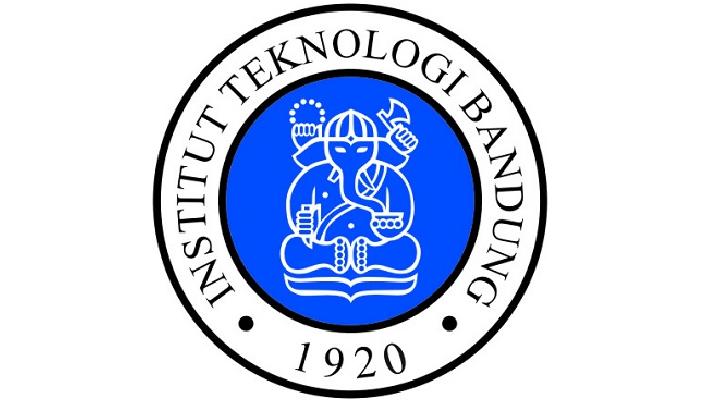
Team of ITB students utilize ceramic waste as a substitute for sand in producing concrete with specifications for high-rise buildings. Encountered errors during pouring.
Indonesia Sanctions 343 Landfills for Open Dumping
28 hari lalu
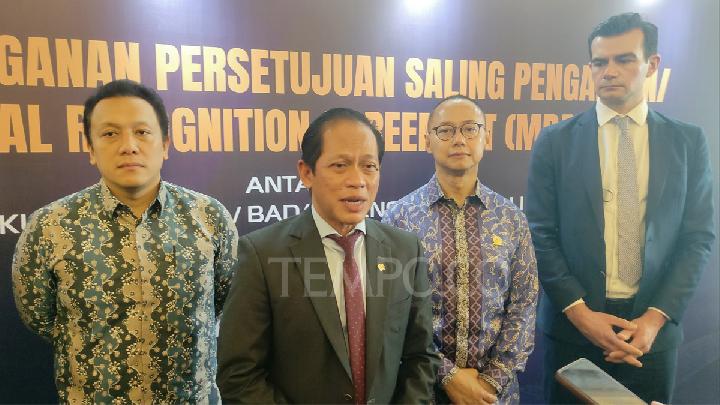
Administrative penalties have been issued to 343 final waste processing sites (TPA) across Indonesia that are using open dumping systems.
Today's Top 3 News: Indonesian Govt Urges Waste Facilities to Stop Using Chimneys; Here's Why
32 hari lalu
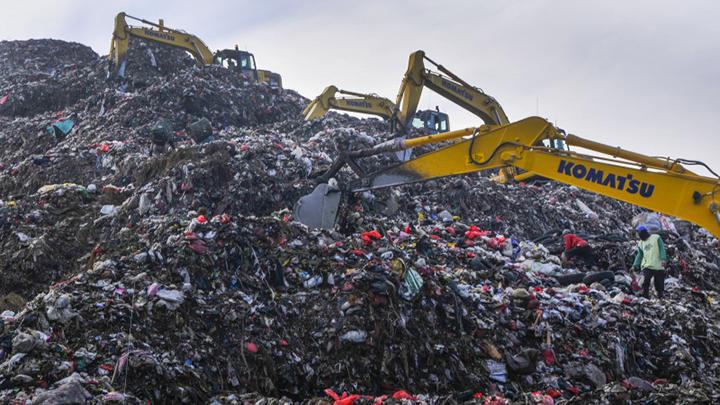
Here is the list of the top 3 news on Tempo English today, May 09, 2025.
Indonesian Govt Urges Waste Facilities to Stop Using Chimneys; Here's Why
33 hari lalu

Chimneys in waste disposal sites, especially those following an open dumping scheme, could produce toxic compounds, such as dioxins and furans
Indonesian Student Wins Global Youth Summit for Cooking Oil Waste Innovation
46 hari lalu

Indonesian student Mochammad Afzal Iftikharus Sadat Ramadhan and team placed 2nd in the Global Youth Innovation Summit for recycling used cooking oil.
Turning Organic Waste into Lush Gardens: Alana Sentul's Green Revolution
48 hari lalu

Alana Sentul City shows a real commitment to environmental preservation by launching a program to process organic waste into compost.
NASA's LunaRecycle Seeks Innovative Solutions for Human Waste on Moon
52 hari lalu

NASA invites researchers and innovators to create technology capable of managing human waste on the Moon.
Pesantren's Progress Through the Circular Economy
5 April 2025

Circular economy practices in pesantren offer many benefits, paving the way to financial independence.
Jakarta to Deploy Nearly 3,000 Sanitation Officers to Anticipate Eid Holiday
27 Maret 2025

A total of 2,906 officers will be stationed at various points, including tourist sites and public areas, during the Eid holiday in Jakarta.




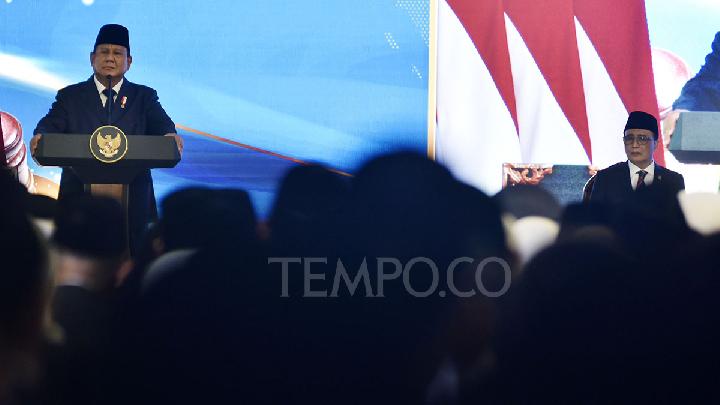







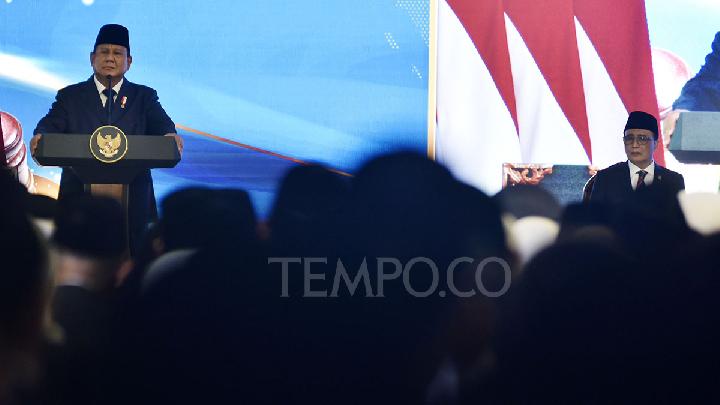


















:strip_icc():format(jpeg)/kly-media-production/medias/3977835/original/066021800_1648524608-pexels-ahmed-aqtai-2233416_1_.jpg)
:strip_icc():format(jpeg)/kly-media-production/medias/3449231/original/035609000_1620241432-000_99C2L3.jpg)
:strip_icc():format(jpeg)/kly-media-production/medias/4779768/original/056174500_1711004488-hands-holding-knife-fork-alarm-clock-plate-blue-background.jpg)
:strip_icc():format(jpeg)/kly-media-production/medias/4678420/original/041411600_1701993066-pexels-thirdman-8489077.jpg)
:strip_icc():format(jpeg)/kly-media-production/medias/5134530/original/076641900_1739622826-20250215-Prabowo-AFP_7.jpg)
:strip_icc():format(jpeg)/kly-media-production/medias/3626995/original/056226000_1636431538-252444828_305857281141144_6357930935168472204_n.jpg)
:strip_icc():format(jpeg)/kly-media-production/medias/1619105/original/061499300_1496997418-ramadan-main.jpg)
:strip_icc():format(jpeg)/kly-media-production/medias/3508689/original/070798000_1626139545-20210713-Elon-Musk-SolarCity-5.jpg)
:strip_icc():format(jpeg)/kly-media-production/medias/4769102/original/014075000_1710171937-20240311-Taraweh_Pertama_di_Istiqlal-ANG_1.jpg)
:strip_icc():format(jpeg)/kly-media-production/medias/5106410/original/089112900_1737608852-Buya_Yahya.jpg)
:strip_icc():format(jpeg):watermark(kly-media-production/assets/images/watermarks/liputan6/watermark-color-landscape-new.png,1100,20,0)/kly-media-production/medias/5140628/original/019242500_1740225866-Persita_Tangerang_vs_Borneo_FC-35.jpg)
:strip_icc():format(jpeg)/kly-media-production/medias/3902213/original/084057500_1642045386-pexels-ralph-w-lambrecht-1446076__1_.jpg)
:strip_icc():format(jpeg)/kly-media-production/medias/4878826/original/064720000_1719661833-WhatsApp_Image_2024-06-28_at_23.09.07.jpeg)
:strip_icc():format(jpeg)/kly-media-production/medias/5141412/original/005545700_1740364919-Snapinsta.app_481203089_18446336839077229_3957692586101845976_n_1080.jpg)
:strip_icc():format(jpeg)/kly-media-production/medias/771429/original/006248600_1416892825-m2.jpg)
:strip_icc():format(jpeg)/kly-media-production/medias/2265569/original/050855900_1530514161-20180702-Harga-Pertamax-Naik-di-Semua-Daerah--TALLO-4.jpg)
:strip_icc():format(jpeg)/kly-media-production/medias/2240997/original/070157500_1528277766-arches-architecture-building-460680.jpg)
:strip_icc():format(jpeg)/kly-media-production/medias/4787912/original/016408900_1711630423-20240328-Penukaran_Uang-AFP_6.jpg)
:strip_icc():format(jpeg)/kly-media-production/medias/5139103/original/083951400_1740056485-Screenshot_20250220_192744_Instagram.jpg)
:strip_icc():format(jpeg)/kly-media-production/medias/4290349/original/045313100_1673596178-cek_fakta_kemensos_dana.jpg)